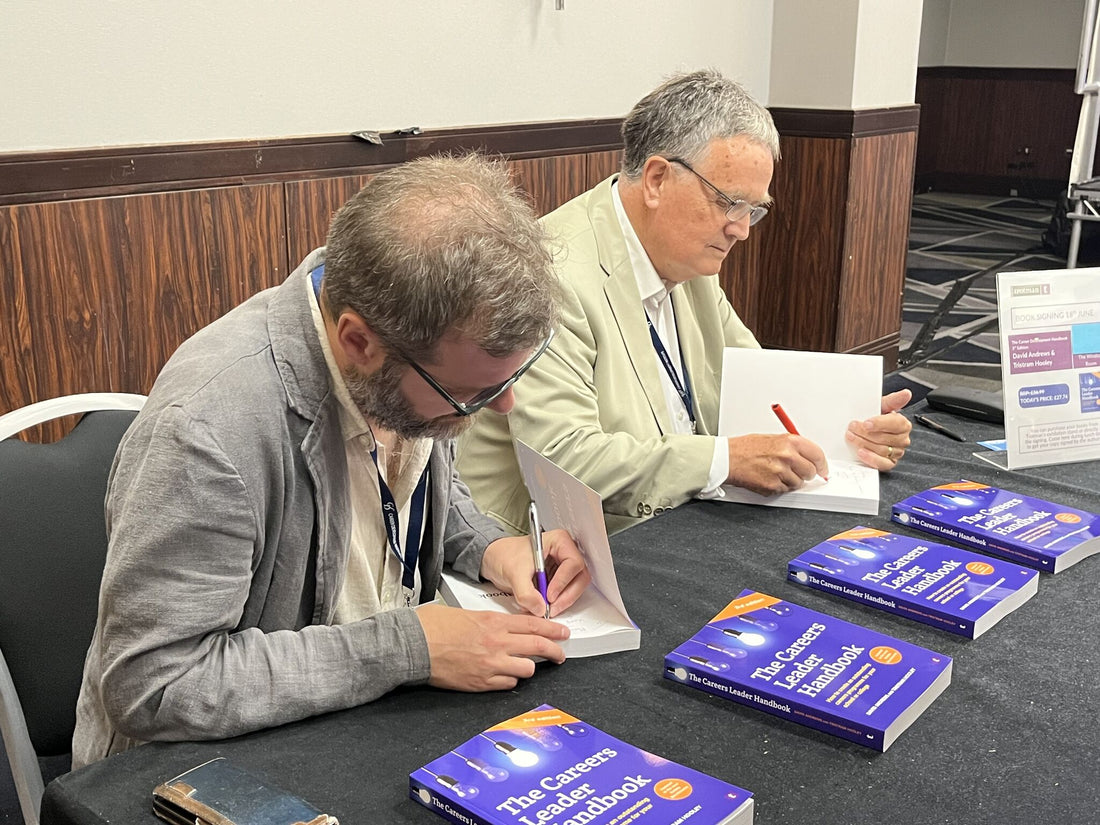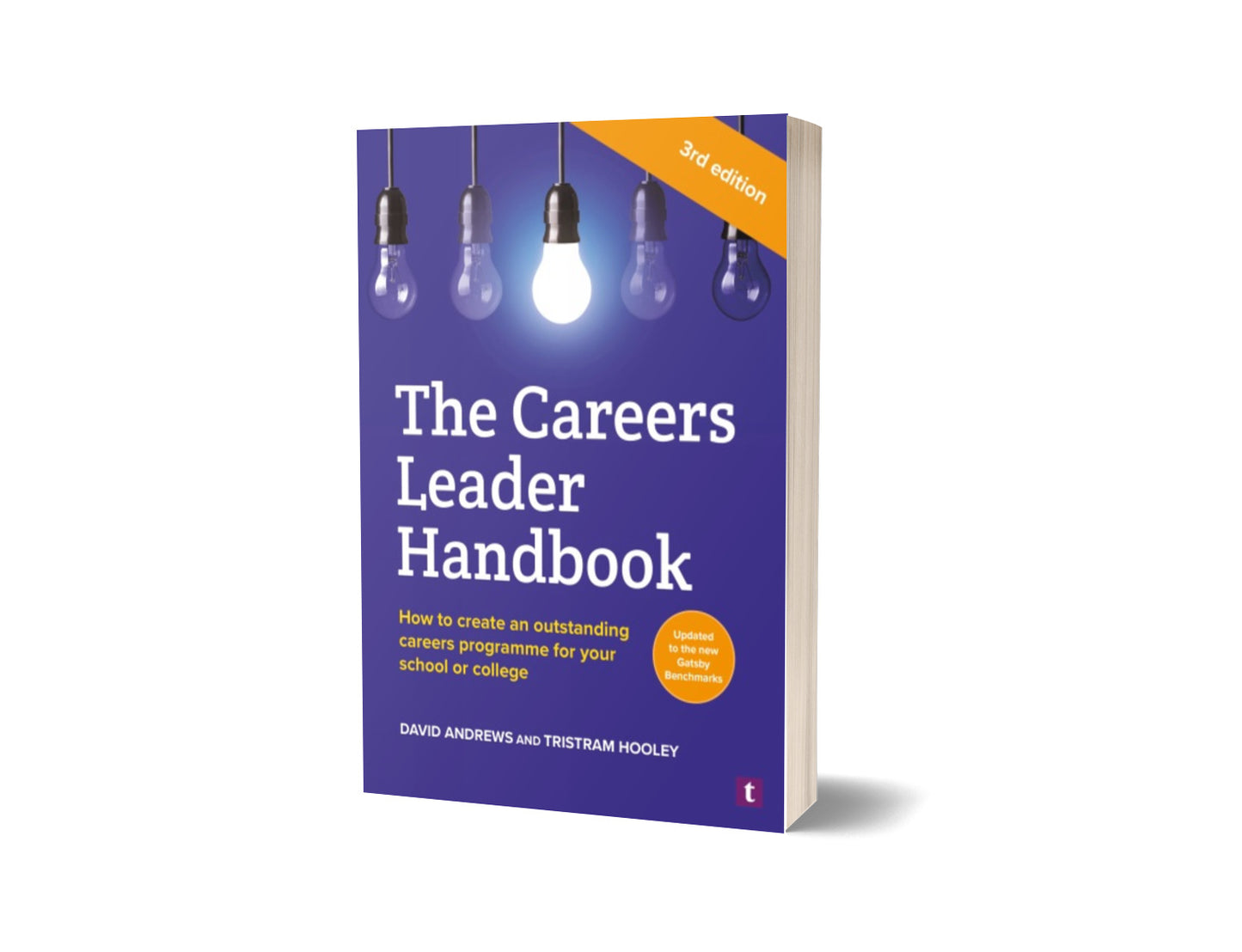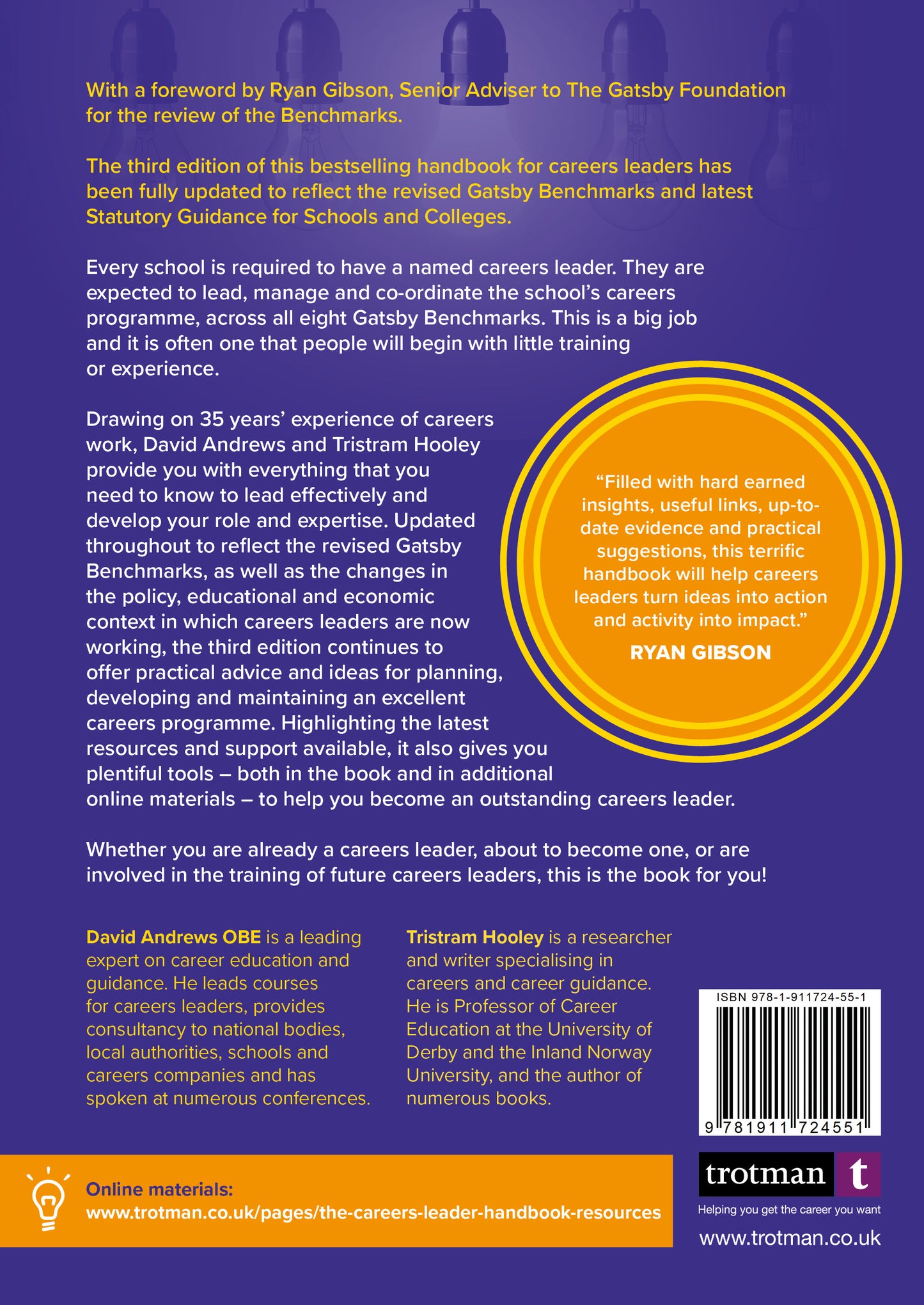
New school year, new Gatsby Benchmarks, new Careers Leader Handbook
By David Andrews and Tristram Hooley
September 2025 heralds the start of a new school year and it looks like being another busy one for careers leaders, with revised Statutory Guidance from the DfE and updated Benchmarks to implement. But help is at hand. The Careers Leader Handbook has been revised and updated to reflect all these changes and the new, third edition is packed with practical advice to help careers leaders get to grips with the tasks ahead.
So, what’s changed?
In November 2024 the Gatsby Foundation published its review of the Benchmarks, ten years after they were first introduced. The first thing to note is that the framework remains fundamentally the same: there are still eight Benchmarks and, with one minor exception, the titles for each one remain exactly as they were before. What has changed is that each of the summary descriptions and associated criteria have been revised and updated to reflect the good practice that has emerged as schools have implemented the original Benchmarks. Consequently, as you review your current programme, you may well find that some of the suggested improvements are already in place. However, there are likely to be other areas where the updates prompt ideas for further development.
During the review five themes emerged and these informed the revisions.
- Career education and guidance is a whole-school and whole-staff endeavour. The revisions to Benchmark 1 stress the importance of linking careers to the school’s vision and overall strategic plan, and they emphasise the need to assign distinct responsibilities to leaders and governors and to pay attention to staff development.
- There is a need to support young people to access career and labour market information. The provision of good quality information remains critical to the Benchmarks, but the revisions to Benchmark 2 make it clear that pupils should also be helped to use it to inform their decision making.
- Careers provision should be tailored to the needs of each young person. In the revisions to Benchmark 3 particular attention is given to inclusion and any additional or different support that may be needed by vulnerable or disadvantaged young people or those with SEND. At the same time, the revisions place an emphasis on using data on aspirations and intended destinations to help tailor support for all young people.
- Encounters with employers, experiences of workplaces and encounters with places of further study should be both varied and meaningful. The revisions to Benchmarks 5, 6 and 7 give expanded definitions of ‘meaningful’. They highlight the need to share the purpose of the activity with all those involved and for the activity to be underpinned by learning outcomes. They also emphasise the need for two-way interaction between the young person and the employer or learning provider, and for young people to be supported both to prepare for the activity and reflect on what they have learned.
- Parents and carers are one of the biggest influences on young people’s career decision-making. Parental engagement features in several of the revisions: planning the programme (Benchmark 1); sharing careers and labour market information and supporting parents and carers to use it with their children (Benchmark 2); and, communicating how to access personal guidance support (Benchmark 8).
That covers most of the updates. Other key changes include:
- the importance of being clear about what you want young people to gain from careers and underpinning your programme with learning outcomes (Benchmark 1).
- the benefit of keeping systematic records of young people’s participation in the careers programme (Benchmark 3).
- the need for all teachers in all subjects to link curriculum learning to careers – highlighting the progression routes for their subject and the relevance of the knowledge and skills developed in their subject for a wide range of career pathways (Benchmark 4). This is also accompanied by a requirement for the school to provide whole school CPD on careers for teachers and other staff.
What’s expected?
The latest version of the Statutory Guidance, released in May 2025, makes it clear that the DfE expects all schools and colleges to use the updated Gatsby Benchmarks from September 2025. This does not, however, require a radical overhaul of your programme. The statutory duties on schools to secure access to independent careers guidance, and to give providers of technical education and apprenticeships opportunities to talk to young people, remain unchanged. Similarly, the same eight Benchmarks stay in place. The revisions and updates which have been made represent incremental steps to improving practice.
If you have been working towards meeting the original Benchmarks nothing needs to be dismantled. You simply need to take stock of your current provision, review the programme against the updated Benchmarks and identify where improvements are required.
No-one would expect you to work on all the changes at once. It is for you as careers leader to identify which improvements would bring the greatest benefits to young people’s career planning and to draw up a list of priorities for development over time. This will then inform the next stage of your strategic plan for careers.
The Careers and Enterprise Company has produced a very useful tool to help you review your provision in detail – the Careers Impact System. You can either complete an internal leadership review online on your own or you could ask your Careers Hub about participating in a peer-to-peer review.
A word about work experience
There is one area where the Statutory Guidance goes beyond the Benchmark revisions. The updates to Benchmark 6 refer to multiple experiences of workplaces and encourage schools to think beyond a single one-week or two-week block of work experience in key stage 4. The possibility of experiences in key stages 3, 4 and 5 is explored, with care taken to plan these activities as a series of progressive learning.
In the Statutory Guidance the DfE goes further and sets out the Government’s vision that all young people should have two weeks’ worth of work experience, broken down into one week’s worth of work experience activities in key stage 3 followed by one week’s worth of work experience placement(s) in key stage 4. The Careers & Enterprise Company’s work on ‘Modern Work Experience’ provides further insights that may be helpful in operationalising this vision. However this is currently an aspiration, not a requirement. The DfE plans to issue more guidance on turning this vision into a guarantee in due course. In the meantime, our advice is to concentrate on implementing the changes in the Gatsby Benchmarks, as this would prepare the ground for any further guidance if or when it comes.
The new edition of The Careers Leader Handbook
In the new, third edition of the Handbook we have updated and extended the contents to address all the changes to the Benchmarks and the Statutory Guidance. Just as with the changes in the Gatsby Benchmarks, this is a process of evolution, rather than revolution, and the structure of the book remains the same. However, every chapter has been revised and refreshed, including all the references to supporting resources. Understandably, the biggest changes have been made to Section 2 which covers each of the Benchmarks in turn. At the beginning of each of these chapters we start by summarising the updates and then go on to describe good practice and offer ideas and practical advice on meeting the expectations.
We are grateful to the thousands of careers leaders who bought the previous editions and gave us helpful feedback. We hope that you will find the new book a valuable source of support as you tackle the task of implementing the revised Benchmarks.






